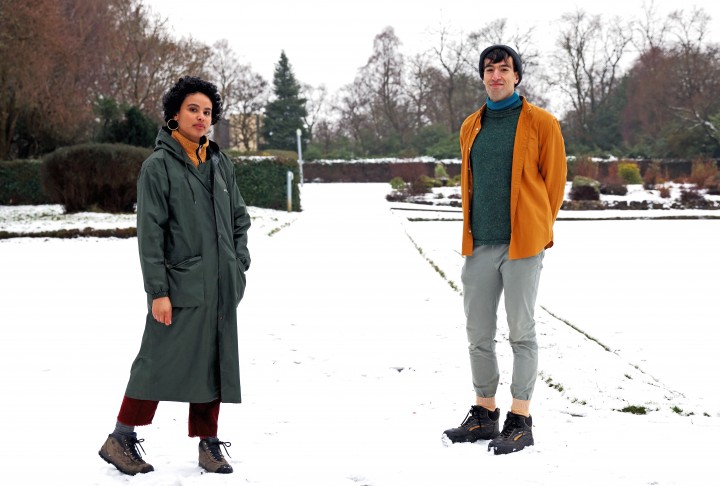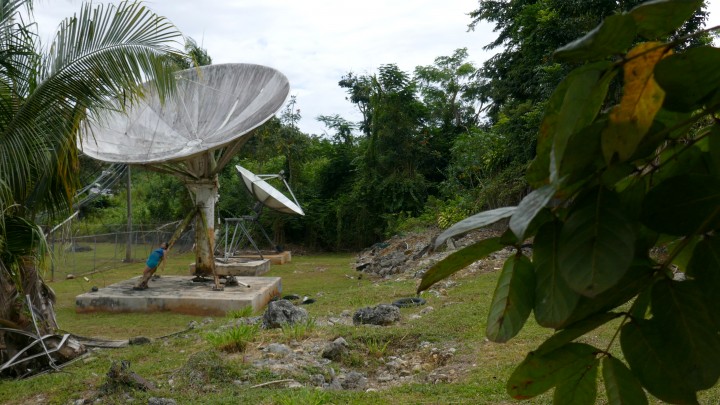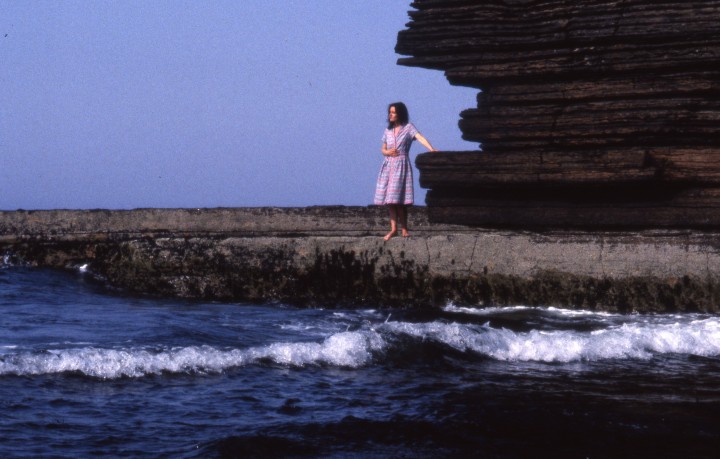Scottish Art News
Latest news
Magazine
News & Press
Publications
Scottish Art Unlocked: Kitty Anderson
By Kitty Anderson, 26.07.2021
 (1).jpg)
When the pandemic hit we were able to take our work online relatively quickly, organising our first public Zoom event a couple of weeks into the first lockdown. Fortunately we were well-equipped for remote working and swiftly got into the swing of things, having regular online staff meetings to keep the programme moving, and ourselves sane.
We adjusted our regular events programme to support artists as best we could – initially offering weekly advice sessions and fortnightly online discussions, and later introducing a series of written online resources in place of in-person events. By summer 2020 a lot of organisations were hosting online screenings, so we focussed our attention on supporting artists and providing opportunities for people to come together, offering a much-needed sense of community during this period of isolation. As an organisation that works across the whole of Scotland, we had been keen to take our programme online for some time, and lockdown provided the nudge we needed to do it. We immediately increased the reach of our work, enabling people throughout Scotland to attend, as well as those with caring responsibilities or difficulty accessing in-person events.
 LUX AMIF 2021 Curators, Tako Taal and Adam Benmakhlouf. Photo credit Matthew A. Williams.
LUX AMIF 2021 Curators, Tako Taal and Adam Benmakhlouf. Photo credit Matthew A. Williams.
The pandemic encouraged us to return to our key aim of supporting, developing and promoting artists working with the moving image, and we used this objective to refocus our work, and review how we would manage three major ongoing projects; the Artists’ Moving Image Festival, Now & Next and the Margaret Tait Award.
In March 2020, just before lockdown, we had invited artists Adam Benmaklhouf and Tako Taal to programme our annual Artists’ Moving Image Festival, which was originally planned to take place at Tramway in Glasgow across a weekend in November that year. As 2020 progressed it became clear that the festival was unlikely to happen as originally imagined, and, as audiences became increasingly fatigued by online film festivals, we tried to find an alternative model for the festival. We decided to take the programme online, but to spread it out across 2021, rather than condensing it into a single weekend. Adam and Tako proposed a cycle of screenings and discussion events that followed the lunar calendar, which allowed for a more flexible approach to programming, and a more poetic response to the chaos of the previous year. Through a series of instalments, the programmers have brought together a collection of powerful moving image works from both Scottish and international artists, and although the first four parts have taken place online, we hope to introduce some in-person events over the coming months as we move towards hybrid programming.
 Emilia Beatriz, A Forecast, a Haunting, a Crossing, a Visitation, 3 channel video and still, 2019.
Emilia Beatriz, A Forecast, a Haunting, a Crossing, a Visitation, 3 channel video and still, 2019.
In April 2020 we launched a call for applications for Now & Next, a partnership with BBC and Creative Scotland to produce 20 short films and audio works for broadcast. As the project was in its second year, we were in a good position to move the whole programme online, which encouraged many more people to apply. We received almost double the number of applications than the previous year, and were delighted to commission artists from Skye, Shetland, Fife, Perthshire and Dumfries and beyond. We also continued working with Platform in Easterhouse on the production of three commissions by young people from northeast Glasgow, with the support of a group of established artists, encouraging both new artists and new audiences for moving image work. The finished commissions will be broadcast on BBC platforms over the coming months, and we look forward to sharing them with our audiences.
Later in the year we launched the call for nominations for the 12th annual Margaret Tait Award and again received more applications than ever before. After a series of rich and challenging conversations with the selection panel in early 2021, Andrew Black was selected as the recipient of the £15,000 award, and his new commission is now in production. Meanwhile we’ve been working with Emilia Beatriz, recipient of the previous award, on the production of their commission ‘Barrunto’, which will premiere at Glasgow Film Festival in 2022, and with Jamie Crewe on touring their award commission ‘Ashley’, which premiered in March 2020 (our last in-person event) and will be presented in Campbeltown later this year as the final screening of what became an unexpected, but hugely successful, online tour.
The increase in applications for both Now & Next and the Margaret Tait Award highlighted the need for a greater range and number of commissioning opportunities for artists working with the moving image, so we were pleased to be able continue working with Cove Park and Alchemy Film and Arts on the Experimental Film and Moving Image Residency, while we explore a number of other opportunities to commission and produce new work in collaboration with partners around Scotland.
 Margaret Tait, Blue Black Permanent, 1992 [still].
Margaret Tait, Blue Black Permanent, 1992 [still].
The pandemic exposed the precarity of artists’ incomes and the new year provided the opportunity for us to review the fees we pay artists. We now base all our event fees on the Scottish Artist Union’s daily rates and we have doubled our commissioning fees. There’s still a long way to go before these fees truly represent the time and energy that goes into producing new work, but we are committed to addressing this year on year.
Lockdown also provided an opportunity for us to review our access measures and we are now committed to captioning all existing moving image work that we present, and commissioning captions for all new work, so that all work that we present is accessible to d/Deaf and hard of hearing audiences. We’ve been delighted to see this become standard for online presentations, and how much both artists and audiences get from making the work more accessible.
The pandemic has exacerbated the extreme inequalities in society, but it has also drawn attention to the changes we can make to improve the world in which we live and work. Last summer LUX Scotland made a commitment to anti-racism, and the team now meets regularly to address the structural racism that affects what we do. We also meet regularly to more fully understand the mental health issues that affect us and those we work with. These conversations have been vital in re-focussing our activity and understanding the context in which we are working, hopefully helping to create a fairer society for all.
The last year and a half has been challenging in so many ways, but it has also provided an opportunity for change, allowing us to draw a line between what went before and where we want to be. My thanks go to all the brilliant people I have had the pleasure of working with during this time for being endlessly accommodating and tirelessly enthusiastic.
Kitty Anderson is Director of LUX Scotland, a non-profit agency that supports artists working with the moving image. Visit Lux Scotland for details of forthcoming events and to subscribe to their monthly bulletin.




